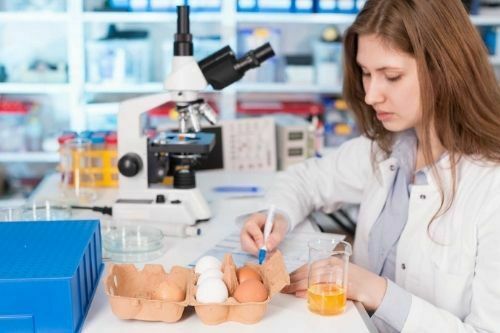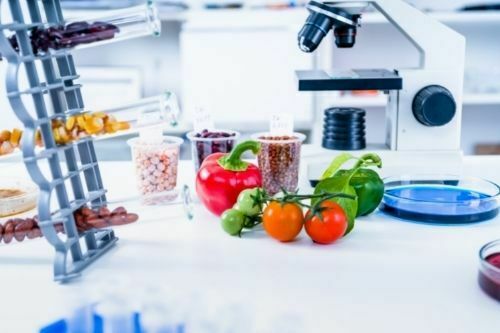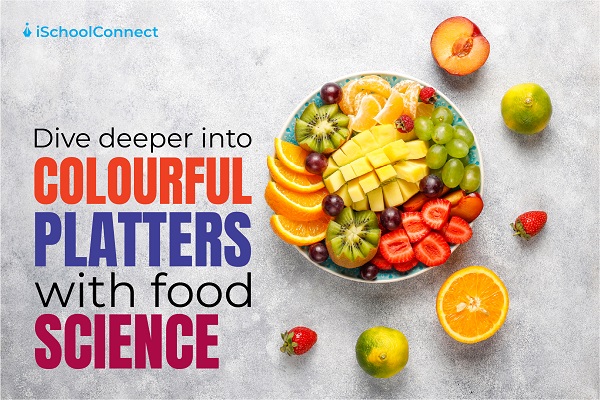Table of Contents
The Food Science sector is growing leaps and bounds as demand for low fat, low carbohydrate, and low sugar products rise. The industry aims to understand and address the real-world issues relating to the complex food system.
Biochemistry, chemistry, nutrition, microbiology, and even engineering are encapsulated in this sector. Researchers in this field study and compare various processing and preservation technologies. These techniques are only set to expand in the future. With further research, scientists will be better equipped to develop quality control procedures that can enhance the production and maintenance of food.
If you want to be a part of this industry, consider pursuing a course in Food Science. Here’s everything to know about this course.
Food Science and Nutrition syllabus

The duration of the course is 3 years. A semester wise breakdown of the nutrition syllabus is as follows –
Semester I
- Introduction to Biology
- Introduction to Food Technology – I
- Mathematics and Statistics
- Technical Writing in English/Computational Techniques
Semester II
- Technical Writing in English/Computational Techniques
- Chemistry
- Introduction to Food Technology II
- Principles of Food
Semester III
- Technology of Fruits, Vegetables, and Plantation Crops
- Foundations of Food and Nutrition
- Food Processing and Engineering
- Project Management and Entrepreneurship
Semester IV
- Technology of Cereals, Pulses, and Oilseeds
- Principles of Food Preparation
- Biochemistry
- Food Engineering
Semester V
- Technology of Dairy and Seafood
- Food Chemistry I
- Food Microbiology
- Quality Testing and Evaluation
Semester VI
- Technology of Meat, Poultry, and Eggs
- Food Chemistry II
- Safety
- Quality Management
Elective subjects for a Food Science and Nutrition course

Along with the compulsory subjects in the field, you also need to opt for certain elective subjects at the master’s level. Opting for an elective subject can help you pick a specialization of your choice. Some of the most prominent elective subjects are listed below-
- Nutraceuticals
- Packaging and Related Technology
- Food Sensory Science
- Food Technology and Safety
- Chemistry of Food Proteins
- Quality Management
- Biochemical Engineering
- Dairy Products and Technology
- Fabricated and Textured Foods
- Health Data Analysis
- Agribusiness Management
- Flavour Technology
The courses and institutes
Have you made up your mind to pursue a Food Science course? If so, here’s a list of some of the top universities where you can apply for the course.
- Master of Engineering in Food Science – Latvia University of Life Sciences and Technologies – Jelgava, Latvia
- Master of Science in Food Systems – EIT, Leuven, Belgium
- Master’s Degree in Food Processing Engineering – Universidade Santiago de Compostela – Lugo, Spain
- Master in Food Biotechnology – Ural Federal University – Yekaterinburg, Russia
- M.Sc in Food science – United Arab Emirates University – Al Ain, United Arab Emirates
- Master in Food and Health – University of Padova – Padua, Italy
- M.Sc Agri-food Technology – University of Lincoln – Lincoln, United Kingdom
Eligibility criteria
- Completed 10+2 or equivalent in the Science stream.
- You must pick one of the following subjects-
- Physics
- Chemistry
- Biology
- Mathematics
- Home Science.
- Secured 50% marks from a recognized university.
- To pursue a postgraduate degree, you must have a BSc (Physics, Chemistry, Biology, or Mathematics) or a BTech/BE in Food Technology with the required grades.
- TOEFL, IELTS, PTE, Cambridge English are some of the language proficiency tests you can opt for.
Food Science books
- Molecular Gastronomy: Exploring the Science of Flavor – Herve This
- Cooking for Geeks: Real Science, Great Cooks, and Good Food – Jeff Potter
- On Food and Cooking: The Science and Lore of Kitchen – Harold McGee
- Salt Fat Acid Heat – Samin Nosrat
- Neurogastronomy: How the Brain Creates the Flavor and Why it Matters – Gordon Shepherd
- First Bite: How We Learn to Eat – Bee Wilson
- The Food Lab: Better Home Cooking Through Science – J. Kenji Lopez-Alt
- The Dorito Effect: The Surprising New Truth About Food and Flavour – Mark Schatzker
- Salt Sugar Fat – Michael Moss
- Why You Eat What You Eat – Rachel Herz
Scope
The course primarily consists of several methods of producing, processing, preventing, packaging, labeling, and maintaining the quality of food items. Aspects of the discipline include the technology utilized to create a product from raw materials.
As the market grows, so do the job prospects in the field. The food science and technology jobs in the field are as follows –
- Food Scientist or Food Technologist
- Product Developer
- Purchasing Manager
- Quality Assurance Manager
- Toxicologist
- Nutritional Therapist
- Marketing Manager
- Personal Trainer
If you hold a bachelor’s degree in the field, postgraduate courses allow you to specialize in that field. Following are some examples of master’s and research degrees-
- MSc/MPhil/Ph.D. Food Security
- Food Quality and Innovation
- Brewing and Distilling with Entrepreneurship
Key takeaways
- As food consumption is an inevitable aspect of a person’s life, the profession related to food sciences is only bound to grow to create a healthy environment for people.
- By opting for food science courses, you can evaluate alternative food manufacturing methods and understand the food market processes and core food processing knowledge.
- A professional in this field can also determine if food manufacturing procedures comply with consumer and industry requirements.
- Most of these programs include internships at food-related businesses to offer students with valuable hands-on experience.
That’s all we have for you on Food Science. If you need assistance in choosing the right course or university for you, reach out to us or drop a comment. We’d be happy to help.
Liked this blog? Read next: Everything you need to know about environmental engineering
FAQs
Q1. What are the different fields of food science?
Answer- The five fields of food science are as follows-
- Microbiology
- Engineering and Processing
- Chemistry and Biochemistry
- Nutrition
- Sensory Analysis
Q2. Is maths compulsory to study food science and technology?
Answer- Whether maths is a compulsory subject or not depends upon the university you prefer to join. However, students with maths in their 12th grade might have an edge.
Q3. Should you opt for a Ph.D. degree after completing your master’s course?
Answer- Students with a Ph.D. have an advantage over their peers in every discipline.







Very informative.
Such a valuable read.